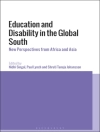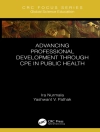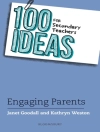′An ideal text for challenging the thinking of those studying for NPQH… The conclusion by the authors suggests nine major points to consider if improvement for schools in extremely challenging circumstances is to happen and be sustained. These ′nine lesson for policy makers′ are very frank and pertinent points, let′s hope at least some of our policy makers read them!′
– ESCalate
′Rarely does a book on education reform capture both the big and the small picture with such brilliant clarity. Mac Beath and his colleagues furnish a ′no holds barred′ account of the ins and outs of understanding and assessing the impact of schools struggling for success. A fascinating read′ – Michael Fullan, Professor Emeritus, OISE/University of Toronto
Schools serving young people on the margins of society face a major challenge in trying to create an environment where students can succeed.
The book examines key issues in the field of school improvement. More specifically, it draws on evidence from the SFECC (Schools Facing Exceptionally Challenging Circumstances) project to explore:
o the policy context of schools on the edge
o the nature of extreme challenges
o the way schools have responded to extreme challenge
o what seems to be effective in helping such schools to meet the challenge
o obstacles to success and the facilities and resources that can make a difference
o strategies to meet the needs of the local community and facilitate lasting change.
Each of the authors has wide experience of school effectiveness and improvement, and of working with schools in disadvantaged communities in Britain, the USA and many other parts of the world.
School leaders, local authorities, practitioners and all those involved in any aspect of school leadership and school improvement will find this book highly pertinent.
İçerik tablosu
Every Child Matters?
Policy Matters
Extreme Challenges
Schools Of Hope
Can Governments Change Schools?
Measuring Improvement
Schools For The Future?
Yazar hakkında
Sue Swaffield is a member of the Leadership for Learning academic group in the Faculty of Education and a founder member of Leadership for Learning: the Cambridge Network. Sue′s teaching and research interests are within the fields of educational leadership, school improvement and assessment. Leadership for learning, critical friendship for headteachers, and assessment for learning are particular interests. She co-directed the Wallenberg funded Leadership for Learning Carpe Vitam project working with schools and universities in seven countries. Sue was also a member of the ESRC/TLRP Learning How to Learn project involving 40 schools and five universities in England, and worked on the Df ES funded evaluation of Schools Facing Exceptionally Challenging Circumstances project. Current research activity includes investigating support and challenge for headteachers, and with the Faculty′s Centre for Commonwealth Education Sue is engaged in a collaborative development and research programme building headteachers′ leadership capacity in Ghana. She teaches on the Masters and Certificate programmes and co-ordinates the Educational Leadership and School Improvement MEd and MPhil. She is an Executive Editor of the international journal ′Assessment in Education: Principles, Policy and Practice′, Associate Editor of ′Professional Development in Education′ and is on the Editorial Board of ′Reflective Teaching′. Her work in Higher Education builds on previous experiences as a teacher and adviser.












